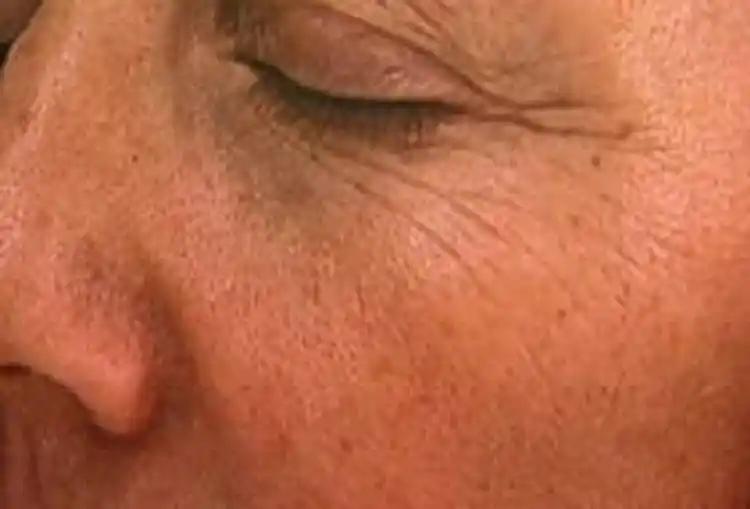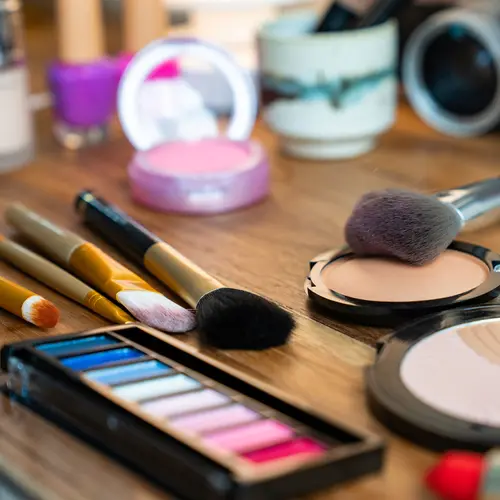The Making of Moisturizers

Hide Video Transcript
Video Transcript
Narrator
Margaret Holmes wants to find the right moisturizer. Dr. Anna Pare
So lets put your chin right here. Narrator
to help her out, aesthetician Lauren Bays is about to give her a view of what's just beneath the surface of her skin: and show Margaret the dry and sun-damaged areas that may not be apparent when looking in the mirror. Lauren Bays
This is showing us fine lines and wrinkles which are usually helped by just a little moisturizer around the eyes. anything to bring back that protective layer of the skin and penetrate the stratum corneum Narrator
The stratum corneum is the outermost layer of your skin – it's the top layer of the epidermis. Until recently, the stratum corneum wasn't considered that important. Dr. Anna Pare
This is actually a very important and vital part of the skin It's the part that looks either nice and glowy because it's hydrated or moisturized properly or the part that looks scaly, that looks like fish scales sometimes we call it. Narrator
The stratum corneum is made up of cells and three types of lipids: Dr. Anna Pare
There are ceramides, which are very important. There is cholesterol which is interesting because we think of cholesterol as being in other areas but there are lipids in the skin and then there are free fatty acids. Narrator
Together, these lipids help form a moist protective barrier on the skin. Some moisturizers try to replace that barrier.. Dr. Anna Pare
Skin that looks more moisturized, balanced, not scaly is achieved by using the right product. Narrator
It may take a combination of ingredients to achieve healthy, hydrated skin. Dr. Anna Pare
Whenever we can I like to consider suggesting a moisturizer that would have an element of alpha hydroxy acid that exfoliates, retinoic acid that affects the turnover of the skin cells and then on top of it a hydrating moisturizer. Narrator
Refining your choice of ingredients also depends on your skin type. Emily struggles with dry skin: Lauren Bays
You want to look for a couple of things in your moisturizer hyraulonic acid is going to bind moisture to your skin, what your body naturally has. Narrator
It helps to read your labels: Lauren Bays
This product is going to show ceramides and actually tell you what they do, this other product is filled with peptides, antioxidants and green tea which is another antioxidant. Narrator
Peggy has dry, mature skin. Dr. Pare tells her she doesn't have to spend a lot to take care of it: Dr. Anna Pare
There are a number of things at the drug store that you can pick up a box and look at things that would have ceramides, fatty acids, antioxidants and then if you get some nice humectants like glycerin based products that would be helpful as well Narrator
Aesthetician Leslye Rooze reminds those with oily skin like Jennifer to moisturize: Leslye Rooze
If you're hydrating properly you're not producing much oil. Things that can typically be an emulsion for drier skin is not appropriate for oily skin, Narrator
Don't forget, perhaps the most important moisturizer ingredient is a sunscreen. For WebMD, I'm Rhonda Rowland. 
